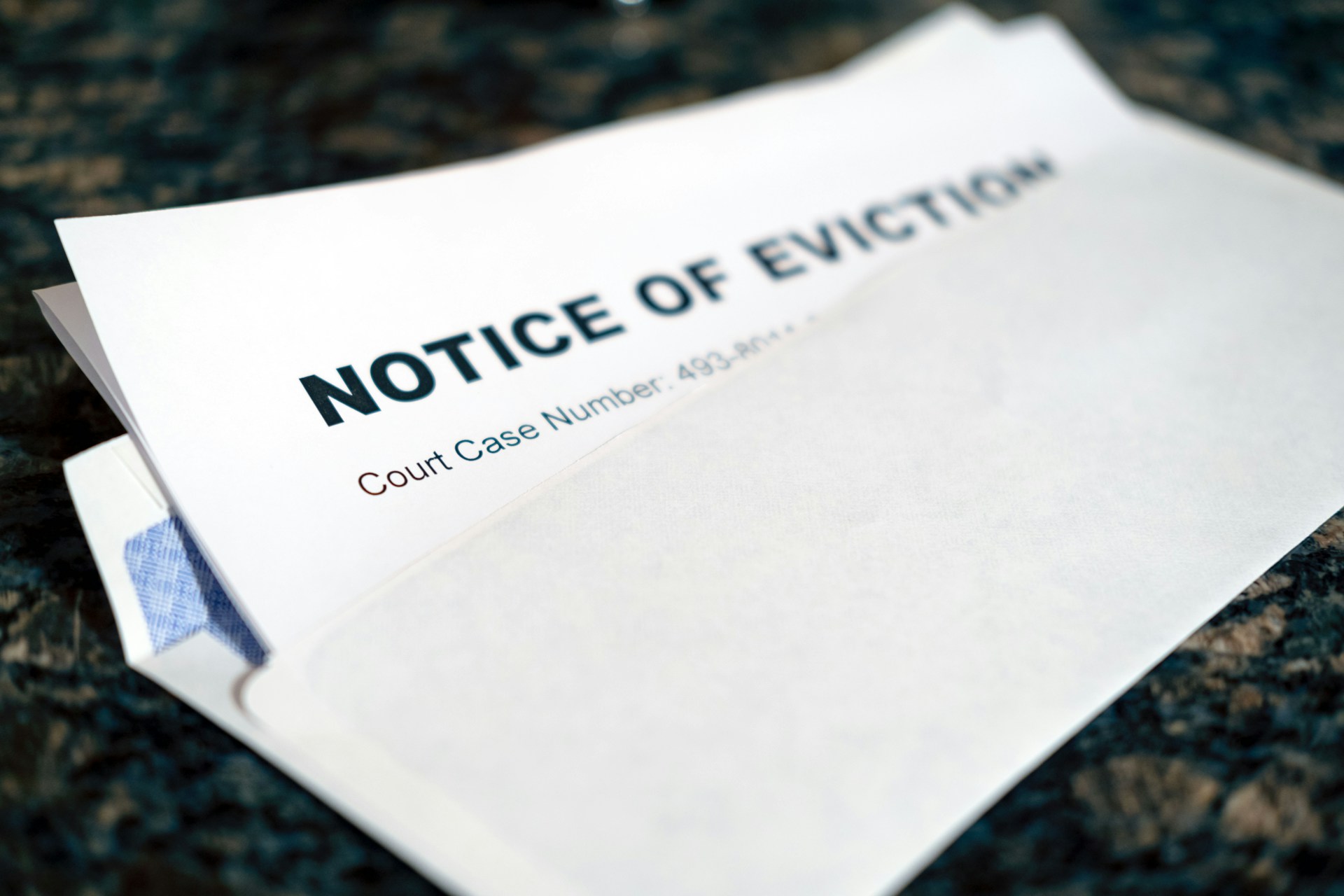Being a landlord comes with various responsibilities, and one of the most challenging can be the eviction process. In New Jersey, landlords must adhere to strict legal procedures to evict a tenant, ensuring they have a legitimate reason, or “good cause,” for doing so. This Landlord’s Guide to Eviction in New Jersey provides an overview of the eviction process and the grounds for eviction under New Jersey law, helping landlords navigate these complex situations.
A Landlord’s Guide to Eviction in New Jersey
An eviction is the formal process of legally removing a tenant from rental property. In New Jersey, landlords must have a valid reason for eviction, and each reason, except for nonpayment of rent, must be detailed in a written notice to the tenant. This notice, known as a “Notice to Quit,” is required for all good cause evictions.
Key Notices in the Eviction Process
Notice to Cease
This warning notice informs the tenant of specific wrongful conduct and instructs them to stop. If the tenant fails to comply, the landlord can issue a Notice to Quit.
Notice to Quit
This notice ends the tenancy and instructs the tenant to leave the premises. However, eviction can only proceed after a court issues a Judgment for Possession.
Filing for Eviction
After serving a Notice to Quit, landlords can file a lawsuit for eviction. If the court rules in favor of the landlord, it grants a Judgment for Possession, legally ending the tenancy and allowing the landlord to evict the tenant.
Grounds for Eviction
Failure to Pay Rent
Landlords can immediately take legal action without prior notice, except for tenants in federally subsidized housing, who must receive a 14-day notice.
Disorderly Conduct
If the tenant continues disruptive behavior after a Notice to Cease, and it affects other tenants, a Notice to Quit can be served at least three days before filing for eviction.
Property Damage
Intentional or grossly negligent damage to the property by the tenant warrants a Notice to Quit and potential eviction.
Violation of Rules and Regulations
Persistent violation of reasonable lease rules after a Notice to Cease can lead to eviction. A Notice to Quit must be served at least one month prior.
Breach of Lease Covenants
Substantial breaches of lease agreements, especially in public housing related to illegal activities, can result in eviction. Specific notice periods and federal regulations apply.
Failure to Pay Rent Increase
Tenants can be evicted for nonpayment after a legal rent increase and a Notice to Quit, served one month before filing.
Health and Safety Violations
Evictions can occur if properties need to be vacated for substantial repairs or if the property is being demolished. Notice periods and relocation assistance requirements apply.
Retirement from Residential Use
If a landlord wants to retire a property from residential use, a Notice to Quit must be served 18 months prior, and no action can be taken until the lease expires.
Refusal to Accept Lease Changes
Reasonable but substantial changes to the lease terms, if refused by the tenant after notice, can lead to eviction.
Habitual Late Payment of Rent
Continuous late payments after a Notice to Cease can result in eviction, with proper follow-up notices required.
Conversion to Condominium or Cooperative
Specific regulations govern evictions for converting rental properties to condominiums or cooperatives, including long notice periods and possible rent-free compensation for hardship.
Employment-Based Tenancy
Eviction can occur if a tenant employed by the landlord loses their job, with a Notice to Quit served three days prior.
Criminal Activity
Convictions or guilty pleas for drug offenses or assaults related to the property can result in eviction, following specific notice requirements.
Special Considerations
Owner-Occupied Properties
Different rules apply to two- or three-family owner-occupied dwellings, with specific notice periods for various tenancy types.
Self-Help Evictions
Illegal self-help evictions or lockouts are prohibited. Tenants should call the police if this occurs, and landlords may face legal penalties.
Filing a Complaint and Judgment for Possession
Eviction complaints must be filed with the Office of the Clerk of the Special Civil Part in the county where the rental property is located. Both landlord and tenant must attend the court hearing. A successful Judgment for Possession allows the landlord to apply for a warrant to evict the tenant, with specific timelines and procedures for tenants to vacate.
Hire Landlord Lawyers New Jersey
Navigating the eviction process in New Jersey requires careful adherence to legal procedures and respect for tenants’ rights. Understanding New Jersey landlord rights is crucial for navigating the eviction process. By adhering to legal procedures and respecting tenants’ rights, landlords can ensure a lawful and fair eviction process, minimizing disputes and protecting their property interests. For expert legal guidance and support contact us today either by filling out the online form or calling us at (973) 478-1026 to schedule a FREE consultation.

